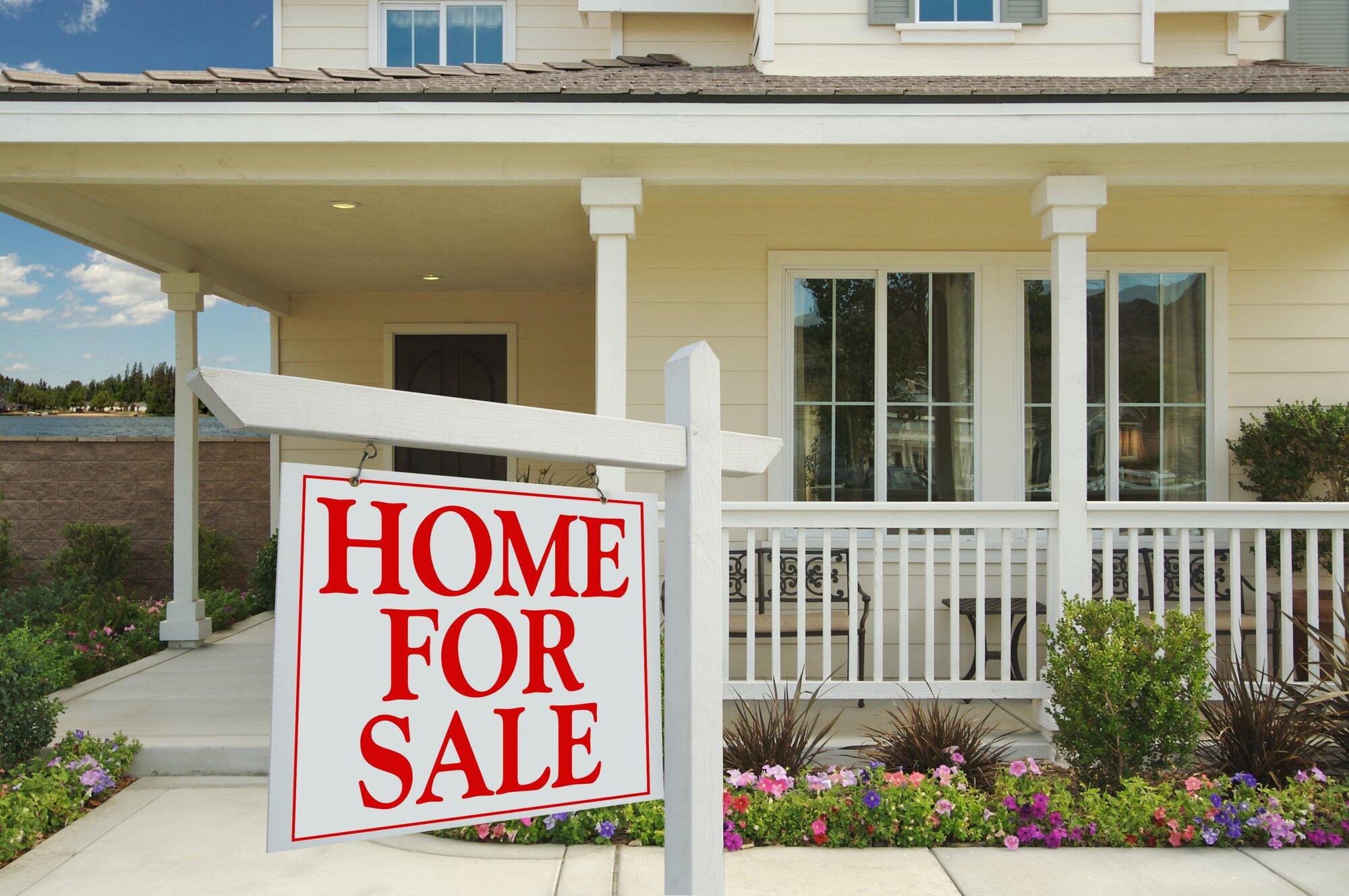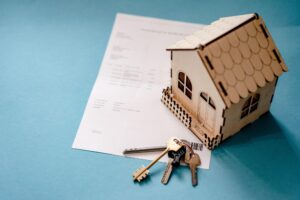Are you considering selling your home in Memphis? Now might not be the best time. After years of high demand and rising prices, the Memphis real estate market is practically at a standstill right now, so it’s important to consider your options carefully.
Some of the most common questions associated with home sales include, “Can you sell a house with a mortgage?”, “How long will it take to sell my house?” and “How much is my home worth?’.
We can help you find answers to these questions and more. Keep reading to discover more about selling a home with a mortgage.
Can You Sell a House With a Mortgage?
Yes, you can. Around 60% of American homeowners have mortgages, so it’s safe to assume that most people sell their homes with a mortgage in place.
There are a few more technicalities involved when you sell your home with an existing mortgage, but it’s completely legal and possible to do so. The trick with this type of home sale is to price your home so that you don’t end up out of pocket.
A mortgage is a type of voluntary lien, as it means that your lender has a claim on the property. However, it doesn’t cloud the title like other types of liens do. That’s because it’s easily settled from the sale proceeds.
You must sell your home for more than what you bought it for, as you’ll need to pay off your mortgage and settle any closing costs from the proceeds. That way, you can use whatever’s left over for a down payment on a new home.
If you underprice your home, you’ll need to pay the amount that’s outstanding on your mortgage, but you’ll have to find the money somewhere else. It’s imperative to know what your home is worth and how much you owe on the mortgage before you put it on the market.
You can use the cash from the sale to pay for your next home, but you would still have to pay the outstanding balance on your mortgage. In this case, the mortgage would simply transfer to the new property in a process called refinancing, or re-mortgaging.
The biggest point to remember is that the debt remains when you sell the home. You’ll still owe the money, even if you’re planning on using the proceeds from the sale of your home to pay off the mortgage.
The good news is that this can result in lower monthly payments, depending on how much equity you have in each home.
Understanding Home Equity
Equity describes the difference between the value of your house and what it costs to buy it, i.e., the difference between your mortgage balance and the amount you could sell it for.
If your home is worth $350,000 and you still owe $100,000 on the mortgage, you have $250,000 in equity. This is what you should get out of the sale, minus closing costs and other expenses.
Sometimes, you can use part of your home equity to arrange refinancing or a home equity loan if you’re struggling to make regular mortgage payments. In this way, owning equity in a home provides a buffer against financial hardship.
A mortgage lender is often reluctant to lend money to homeowners who don’t have positive equity, as it’s unlikely they’d be able to repay their loan. This is often the case when you’ve inherited a house and have no equity in it, or if you’ve undergone a foreclosure in the past.
It’s best to hold onto your home until you have at least 20% equity in it, i.e., you’ve accumulated at least 20% of its value in mortgage payments or market appreciation. You’ll have fewer options available to you if you have more than 80% left on your mortgage.
For absolute certainty about the best route for you, you should speak to your mortgage lender about the status of your equity and ask them for suggestions.
How to Sell a House With a Mortgage
The easiest way to understand how selling your home with a mortgage works is by going through the steps one at a time. Here’s what to expect:
Inquire About Your Outstanding Loan Balance
Ask your mortgage lender for a payoff quote. This amount indicates how much you still owe on your mortgage. This impacts how you should price your home to ensure you come out in the clear.
The lower the percentage of money outstanding relative to the original mortgage balance, the better. This indicates higher equity in the home. The more equity you have, the more you’re likely to make from the sale, and the better your chances of being able to transfer the mortgage to your new home.
If the amount you owe on your home is more than its current market value, you have negative equity, known colloquially as ‘being underwater’. One example of this is during a market slump where your $300,000 home loses value to the point where it’s worth less than what you still owe on the mortgage.
If this happens, you have three options:
- Getting your lender to write off some of the debt
- Paying the difference out of pocket
- Delaying the sale until the market improves
Research the Best Time to Sell
The best time to sell your house depends entirely on your reasons for the sale. In some cases, you may have no choice but to sell; these include:
- You’re relocating for work
- If you’re unable to maintain the home anymore
- You’ve inherited an unwanted home
In these cases, you’ll need to sell your home fast and won’t have the luxury of waiting around for the ideal market. In other instances, such as downsizing or wanting to relocate to a new area, you should always wait for a seller’s market.
In a seller’s market, home prices are increasing, and there’s high demand for homes in your area. This can work against you in your search for a replacement home, though.
Determine a Fair Listing Price
There are two elements to keep in mind when pricing your home. The first is how much you need to make from the sale.
This figure includes:
- Your mortgage balance
- Real estate agent’s fees
- Closing costs, such as pro-rated property taxes
Secondly, you must take the market into account so you can set a fair price. Technically, you can market your home at any price you like, but you’ll have a hard time attracting buyers if you price it too high.
You can estimate the value of your home by investigating the sale prices of similar homes in your neighborhood that have recently been sold.
Another way to get an approximate value is by entering your home address in an automated valuation model (AVM). These online tools can help you estimate your home’s worth.
Hiring a home appraiser is the best way to get an accurate figure when it comes to pricing your home. These experts are familiar with all the factors that can impact home values and will give you an unbiased estimate of your home’s value.
If a buyer does express an interest in your home, their mortgage lender will insist on an appraisal before granting their mortgage. So, hiring an appraiser at the outset can prevent a fallout later on, unless you’re lucky enough to find a cash buyer for your Memphis home.
Sell the Home and Pay the Closing Costs
Once you’ve found a buyer and negotiated a price you’re both comfortable with, you can sell your home with its existing mortgage. You must contact your mortgage lender for a current payoff quote to ensure you pay the correct amount, including interest up to the date of your move.
Every payoff quote has an expiration date, so make sure you pay the outstanding mortgage fees before that time. Your lender will refund any difference between the actual amount owing and the quote if you pay early.
If you pay off your mortgage within three to five years, you might have to pay a penalty fee. If you have any liens against your property, you’ll need to pay them at the same time you pay your outstanding mortgage amount.
You must pay all the closing costs before you can transfer your home’s title; these include:
- Buyer and seller’s real estate agent’s commission
- Owner’s title policy fees
- Escrow account fees
- Prorated taxes
- Prorated HOA fees (if any)
You can use any money left over from the sale as you please but be warned that you may need to pay capital gains tax on any profits from the sale.
Sell Your House With a Mortgage Fast
Stop worrying about questions like, “Can you sell a house with a mortgage?” and discover the benefits of selling a home fast to a committed cash buyer.
At We Buy Houses Memphis, we offer you a fair price for your home and close the deal when you’re ready. Get in touch today or reach out via our website to experience the convenience and savings that go hand in hand with selling your home to us.







